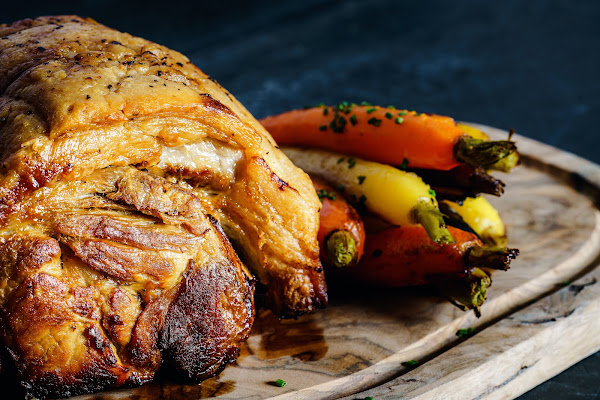The problem is our collective misunderstanding of the science of tender meat. Most amateurs get it totally wrong.
Fortunately, this post is here to help. We ask what makes meat tender and how you can achieve it. Learn all the tips and tricks you need right here.
What Makes Meat Tender? Meat tenderness is a complex attribute influenced by many structural and metabolic factors, mainly connective tissue concentration, final pH, muscle contraction during rigor mortis, and probably the most important, the activity of proteolytic enzymes. And while that all sounds hopelessly complex, they are all things chefs can work with (or around) when preparing meat. Ideally, you want animals that haven’t been stressed and that were properly prepared and stored as cadavers.
How To Achieve Tender Meat In The Kitchen
There are several ways you can achieve tender meat in the kitchen. All the following techniques are tried and tested, pretty much irrespective of what you want to cook.
Aging
Aging occurs when you hold meat under refrigerated temperatures for several days or weeks to allow proteolysis to occur. As the meat ages, some of the tough bindings between the proteins begin to break down, improving tenderness by up to 20 percent in some cases.
Be careful, though. Aging meat also has some downsides, such as reducing the meat’s weight and risking microbial spoilage.
Marinating
Another technique is marinating. This is the process of soaking meat in a mixture of ingredients that can include acids, enzymes, oils, herbs, spices, and other flavorings. Sufficient marinating can improve meat tenderness by denaturing or breaking down proteins with acids or enzymes. Certain fruits, for example, have enzymes that tenderize meat. Marinades can also enter deeper into the meat, affecting its flavor and how it feels in the mouth.
Applying heat to meat also makes it more tender by softening collagen into gelatin and releasing moisture from the muscle fibers. However, it can also reduce meat tenderness by coagulating some proteins. That’s why it is so critical to learn how long to bake chicken thighs. You want to get the balance right. Always check the optimum cooking temperature to achieve the desired meat tenderness.
Tenderizing
Tenderizing involves applying physical or mechanical forces to break down muscle fibers and connective tissue in the meat. Chefs usually do this using a handheld mechanical tenderizer, usually by pounding meat before applying a marinade.
But, again, you need to be careful. While tenderizing can have a positive effect on the meat, it can also damage its integrity, leading to water loss. Only minimally tenderize meat. Don’t smash it to pieces.
Wrapping UpAchieving meat tenderness is more challenging than most chefs imagine. It requires following a careful formula and knowing the cut. That’s why you’ll want to follow instructions the first few times you attempt it.









Thank you for these tips. I definitely struggle with this. I'm going to order a handheld tenderizer for sure.
ReplyDeleteSINCE I AM COOKING MORE AT HOME LATELY, THIS IS USEFULL INFORMATION TO READ. I AM GOING TO SAVE THIS ARTICLE.
ReplyDeleteThis was so helpful for me to read I learned a lot thanks for sharing this one.
ReplyDeleteheather hgtempaddy